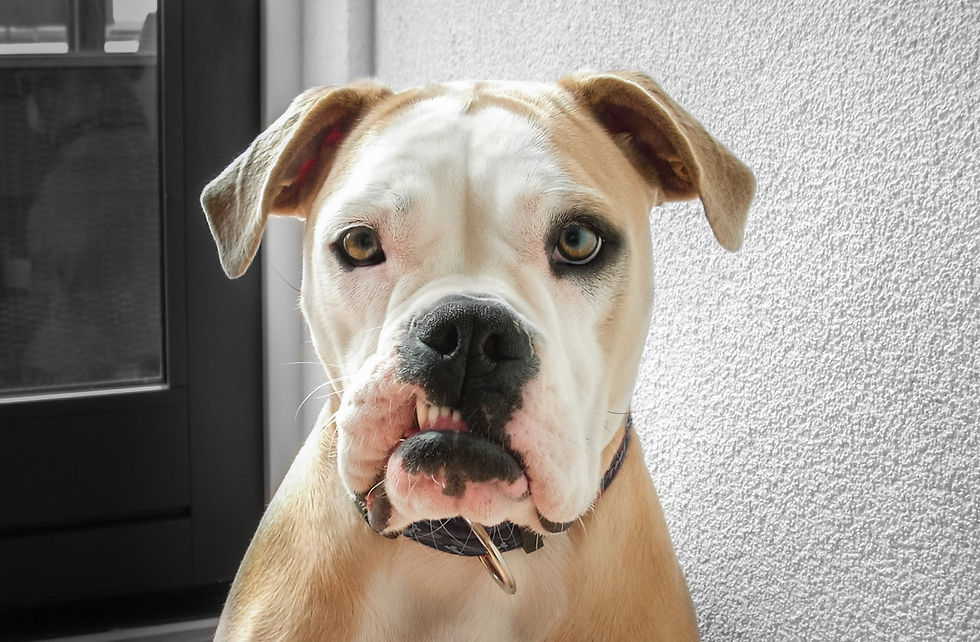Pet Dental Health - Caring for your companion's teeth
- Wanaka Dog Walking
- Feb 17, 2019
- 4 min read
Cats and dogs need their teeth looked after just like us humans!
Why is pet dental care important?
Animals rely a lot on their teeth, and if a problem arises with any aspect of their mouth, it can affect the way they eat, drink and play. Neglecting the care of your pet's oral hygiene could negatively impact your pet's overall health, so it's best to keep on top of it.

One of New Zealand's leading veterinary groups, VetEnt, state that plaque is the root cause of cats and dogs' dental diseases. They explain, "[t]he accumulation of bacteria, saliva and food on teeth is referred to as plaque. If not removed from the tooth over time the plaque becomes mineralised, forming a hard coating over the tooth called tartar." If spotted at this stage, the build up can be dealt with, and your pet won't be at risk of developing any serious diseases. However, if left untreated, further progression of plaque and tartar includes inflammation of the gums (gingivitis), damage of the ligaments and bone surrounding the tooth, and possible infection which can lead the disease to spread to the pets' organs, which is life-threatening.
Signs of dental disease
• Bad breath
• Bleeding or red gums
• Yellow brown crust around gum line
• Loose tooth/tooth loss
• Dribbling saliva
• Behavioural changes (subdued/aggravated/lethargic)
• Pawing at the mouth
• Swelling inside or outside the mouth area
• Change of eating habits
• Pain when eating
• Refusing to eat
How should I check my pets' mouth?

When you check your pets' teeth and gums, it's important to remember that just because they like you, it doesn't mean they are going to let you prod around their mouth whenever you want. So, to minimise the risk of stressing your pet out, or being bitten, you should aim to check your cat or dog's mouth quietly, calmly and when they are in a relaxed state.
You don't even have to get your companion's mouth open wide to carry out an oral check. The best way to have a good look is to be sitting with your pet, then you can easily lift the flap of their gums and look for any signs of wobbly or broken teeth, plaque build up, areas of the gum that look a different colour, swelling or developing lumps. Make sure you check out both sides of the mouth!
The more regularly you carry out these checks, the more comfortable your pet will become with you doing it.
Preventing build up and illness
The main way to prevent your pet of developing a dental disease is to brush their teeth. You can find soft toothbrushes specifically designed for pets, and pet-safe toothpastes (don't use human toothpaste!) PetVet suggests that "[c]ats and small dogs may feel more comfortable if they can sit on their owners lap while having their teeth brushed," and they have a great guide on how to introduce your pets to teeth-brushing:
"Begin slowly, initial sessions should be brief, a minute or two and well rewarded.
Get your pet used to the toothbrush by dipping it in tuna juice, chicken or beef stock or just use water.
Next try offering the toothbrush with the paste, without brushing. Allow your pet to taste the paste.
When your pet is comfortable with the brush try brushing one or two strokes on a few teeth. Slowly increase the amount of brushing as your pet becomes more comfortable.
Start at the front of the mouth. Pets are often more accepting of this."
There are alternatives to maintain your pet's oral health, but they aren't as effective as brushing their teeth. Still, they'll definitely give your pet a reason to smile and show you those pearly whites!

One option is treats and chews. When your pet chews on pig's ears, trotters, rawhide bones or dentabones, the physical rubbing and chewing helps remove plaque and encourages the spread of protective saliva. Most of the popular pet food companies offer pet dental health treats specifically designed to keep bad breath and plaque build up at bay, for dogs and cats.
Another option is dental-diet approved kibble. Not only are there treats designed to reduce the amount of plaque and tartar on your pet's teeth, but there are dry food you can buy which are larger than average and contain special nutrition to remove stains and build up.
Dental toys are also available to support your pet's oral health; kongs are a great choice for dogs, and dental stick toys can also be found for cats.
These alternative options should not be relied on to completely remove any plaque or tartar from your pet's teeth, but they are good ways of ensuring your pet's teeth and gums are put into action and kept relatively clean.
Regular trips to the vets is a must, as they will be able to carry out a more thorough examination of your pet's mouth, as well as note any changes. Doing this, and using the dental-range chews, toys and/or food is the most effective way of ensuring your pet doesn't develop a dental disease.






Comments